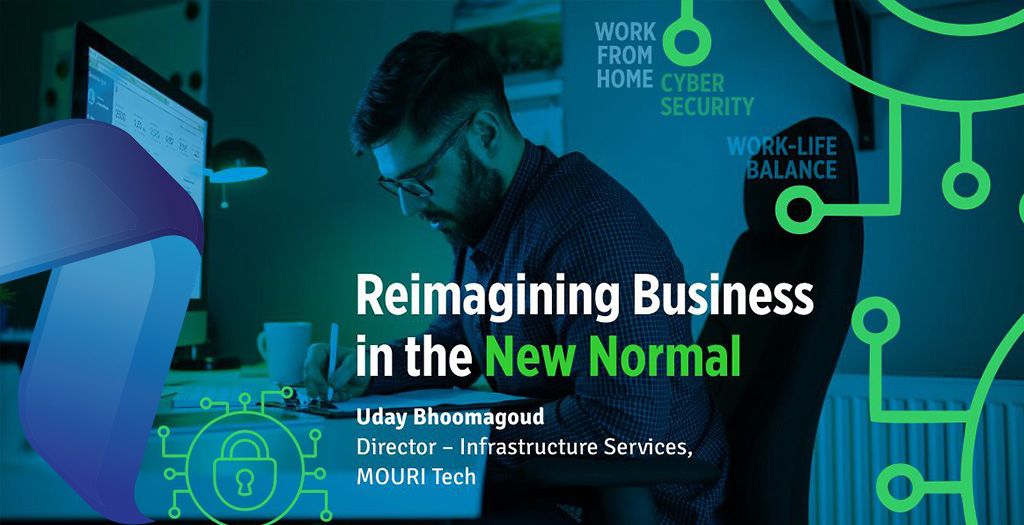The COVID-19 pandemic has forced businesses to relook at their operations. Organizations are reimagining their work and the role of offices to build a safe, productive, and enjoyable working atmosphere and lives for their employees.
A few months ago, just 3.6% of employed Americans1 worked from home. With the onset of COVID-19, more than half of the American workers have transitioned to working from home. On the one hand, where the work-from-home ’experiment’ has been surprisingly successful, with employees keen to continue remote work post-pandemic, there are increasing concerns about striking a balance between work and personal life.
The pandemic has resulted in a ‘new normal’ in every aspect of life. The gap between office and home spaces has bridged and launched a 24*7 struggle to ensure a ‘work-life’ fit. Working from the office offered a ‘cut-off’ time as employees traveled back home, which is now reduced to traveling between rooms. While experts suggest having a dedicated workstation in a zone free of disturbance, employee well-being and overall happiness has been impacted.

IT and HR Leaders can help build authentic and meaningful employee experiences.
– Uday Bhoomagoud Director – Infrastructure Services, MOURI Tech
In the current scenario, employees feeling stressed out is a common sign across organizations. It could be due to overwork, family members’ health issues, loss of loved ones, or the fear of job loss. The HR team can pitch in to soothe that anxiety by addressing these emotions and communicating regularly with empathy and honesty. By acknowledging what their staff is going through, HR can help them be more resilient and optimistic.
Although technology has helped the global workforce stay connected, sometimes it becomes necessary to sever the connection. Employees are almost always conscious of alerts and push notifications intruding on their phones and personal spaces. Based on work commitments, the concept of ‘quiet hours’ can be practiced where managers allow team members to delay responses to clients that do not demand immediate attention. In case of projects that necessitate support beyond office hours, managers need to plan resources accordingly to avoid reaching them outside acceptable working hours that threaten to exhaust their workforce. Besides, it is helpful to understand what employees value the most and seek their inputs when setting up any new policies.
Remember, when employees feel supported, the entire team will benefit from a much healthier work environment.
Ranked best in the United States between March and December was Acuity Insurance, with several reviews mentioning a flexible work schedule that lets them focus on their personal lives, Glassdoor said2.
Companies will benefit by focusing on employee satisfaction because they keep the business up and running. Besides, the present and potential candidates consider factors such as long-term workplace flexibility, a commitment to health and well-being, and purpose-driven work culture before they decide to either stay or join.
Cyber Security Risks due to Remote Work
The past year has witnessed an explosive expansion of the network edge and decentralization. The seismic shift to remote working has lured cybercriminals to target people in their homes, which have become workplaces too. Thus, working from home is a gateway to new forms of data theft.
Cybercriminals continue to pursue social engineering attacks and attempt to penetrate vulnerable home devices to obtain lateral access into the business. These attacks in the form of phishing, including by email, voice, text, instant messaging, and even third-party applications, will cause remote workers to reign as the number one attack carrier for exploitation.
Unfortunately, it will take longer to detect and identify data breaches due to the growth in remote work. The harsh reality is that employees use consumer internet with no or little controls, which essentially acts as a buffet line for cyber attackers.
Tackle Cyber Security Crises
For starters, organizations can train their employees on how to avoid suspicious emails and malicious links. Also, they can leverage privileged access management (PAM) and identity and access management (IAM) to restrict access to and protect confidential client or organizational information.
Organizations also need to be proactive in treating threats and optimize their threat intelligence to understand the tactics of attackers and prioritize security resources appropriately. Furthermore, enterprises can build a ransomware attack plan that approaches compounded threats and data theft extortion practices. Conclusively, all organizations need to have robust and effective backups, test backups, and offline backups.
Strengthen Security Vigilance
If you are looking for help to manage these risks, we are keen to help. Our remote and onsite services include data protection and cyber security training, tools, software, and consultancy services.
About Uday Bhoomagoud: Director – Infrastructure Services, MOURI Tech.
Uday leads the infrastructure services and cloud solutions practice of MOURI Tech. He brings a fresh perspective on how to optimize the IT infrastructure portfolio for customers across the globe.
References






